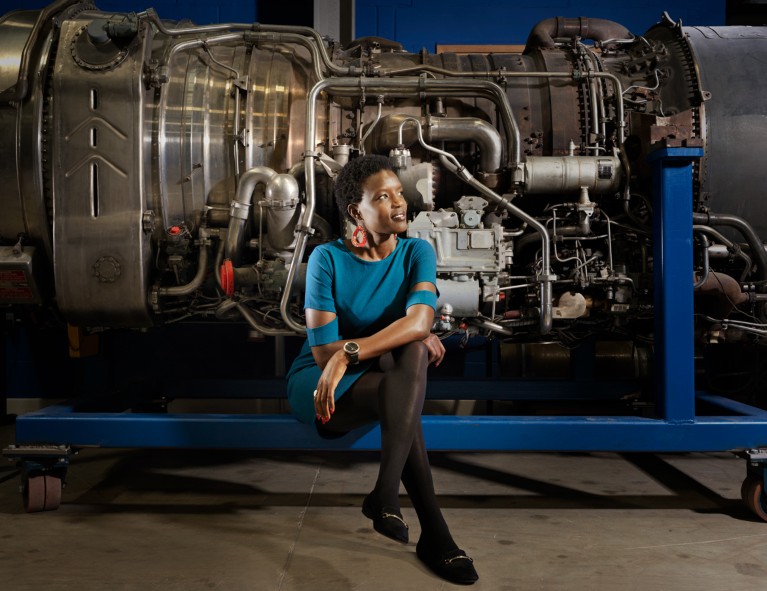I spend a lot of time with jet engines as part of my PhD, trying to improve them. This one is a Concorde engine — it’s a demonstration model that’s used to show where the various components of the engine are located, and it sits on the ground floor of the institute where I work.
Jet-engine turbines can reach temperatures of 2,000 °C. I’m exploring ways to use less air to cool them and to reduce carbon dioxide emissions. I test the performance of films that coat different engine-blade designs in a one-metre-long research tunnel at one of the 20 research facilities at the institute.
As a PhD student, I get limited time with the rig, which I use to test whether our models are accurate. A mock turbine is wired with small, flexible tubes to monitor pressure as well as with tiny temperature sensors.
The set-up leaves just enough space to sit at a computer table to record data.
The machine is deafening and I often do experiments that involve ultraviolet light. Everyone has to wear ear protection and goggles. To ensure that my experiments run smoothly, I prefer to process and analyse data early in the morning, late in the evening or at weekends, when colleagues are largely absent. I’ve found that the small breakthroughs always come over the weekend.
Since I left Kenya to start my PhD four years ago, I’ve relied on a strong support system during tough times. Some personal rituals help me to focus. I play high-energy dance music — including Bongo, or Swahili hip hop.
Getting my brain into a rhythm, just like when I’m running, helps me to relax and solve problems when something is not working.
I also like to keep my work area simple and clutter-free to avoid distractions. I don’t have any posters or any other personal touches. It’s just me, my tunes and the rig.
Oddly, as my experiments wind down, I feel like I’ve developed Stockholm syndrome. I’ve spent so much time here, yet I realize that I’ve formed some kind of attachment to this place — and I know that when I ultimately leave, I’ll miss it.


 PhDs under publication pressure
PhDs under publication pressure
 Twenty things I wish I’d known when I started my PhD
Twenty things I wish I’d known when I started my PhD
 Make science PhDs more than just a training path for academia
Make science PhDs more than just a training path for academia





